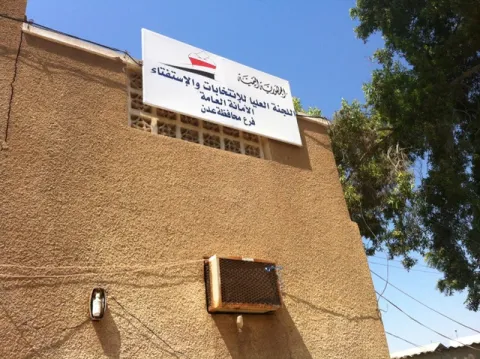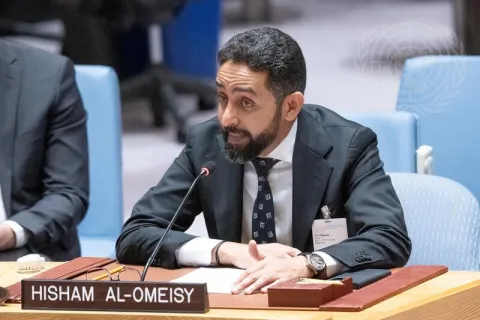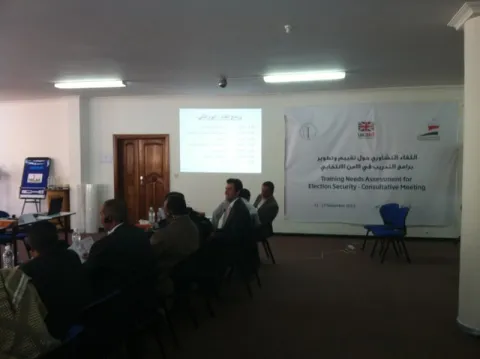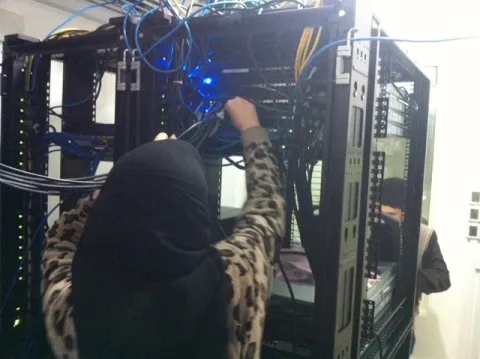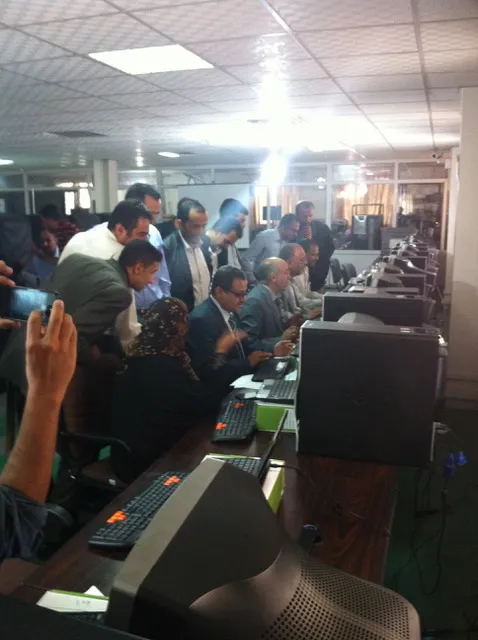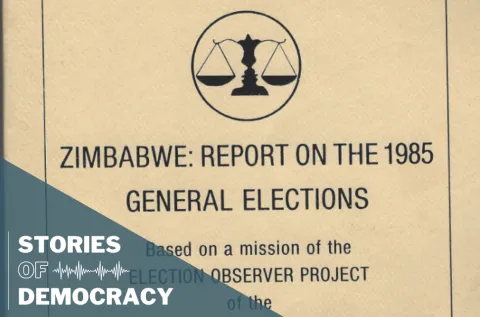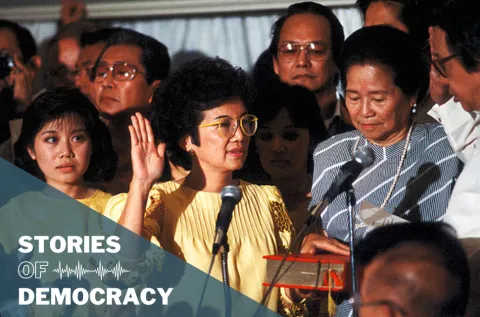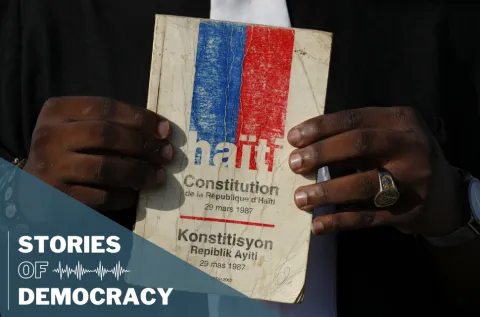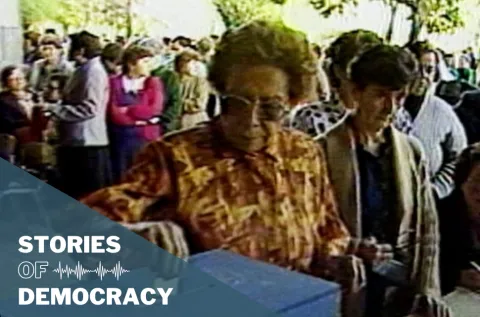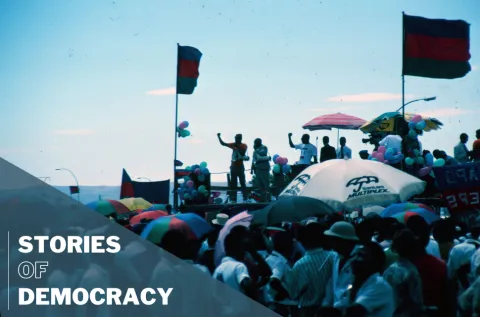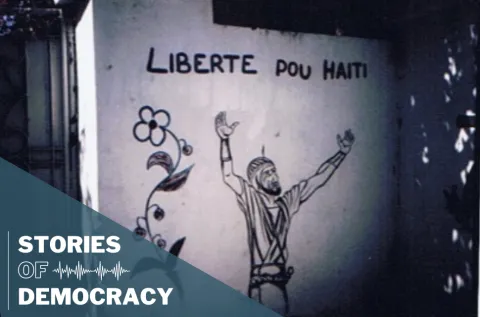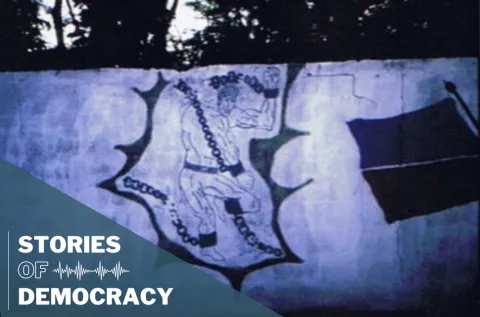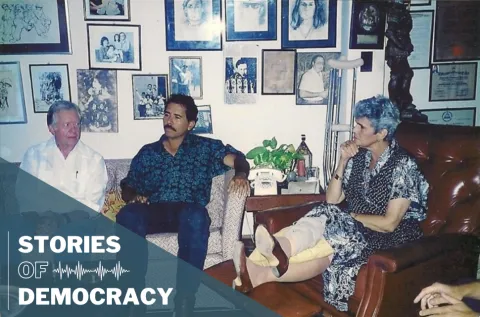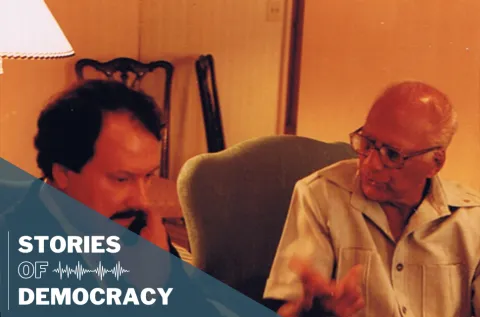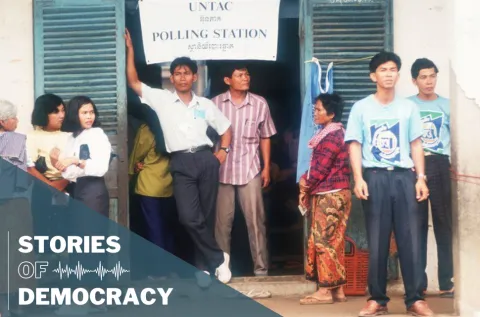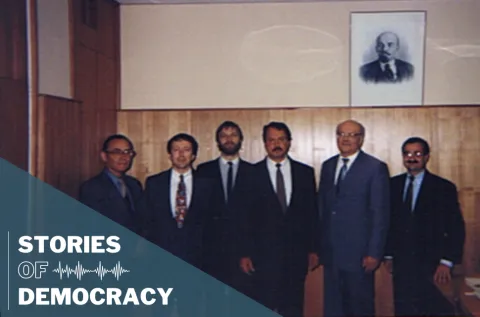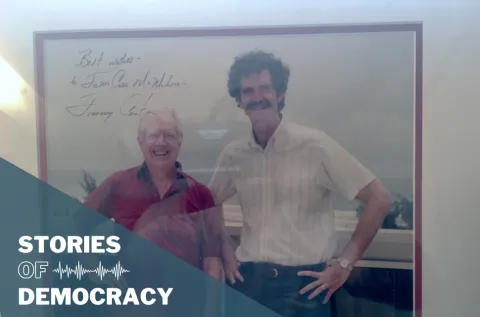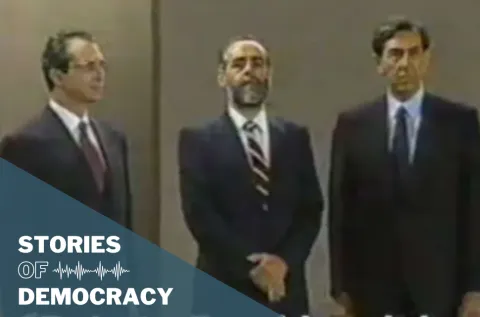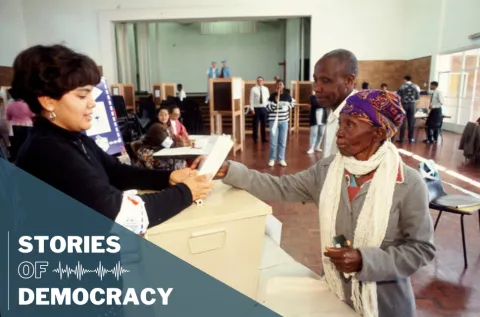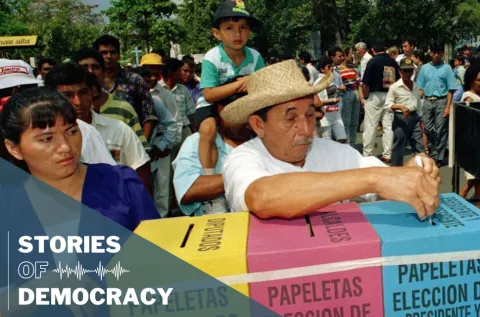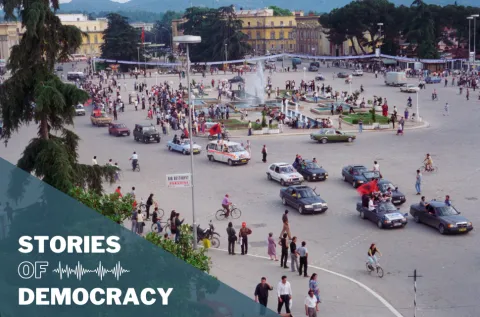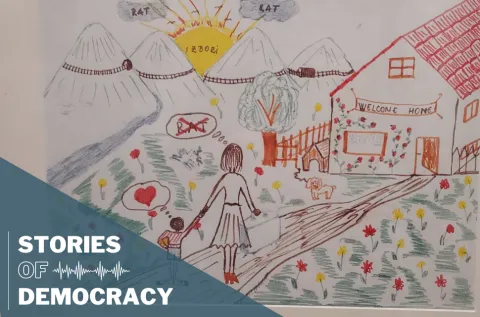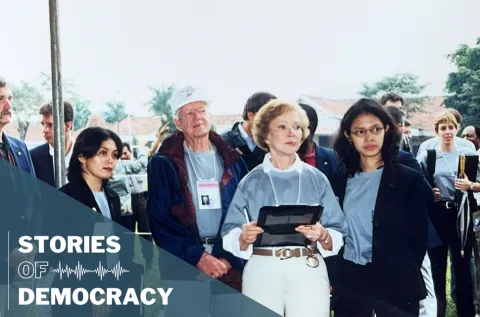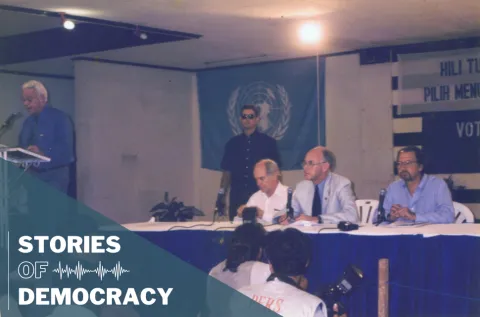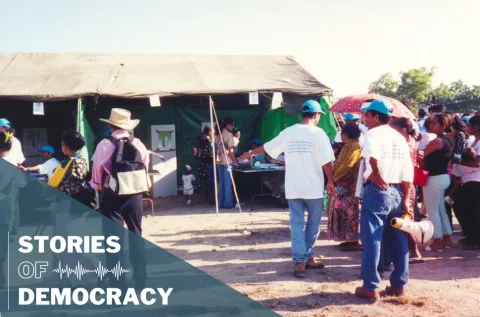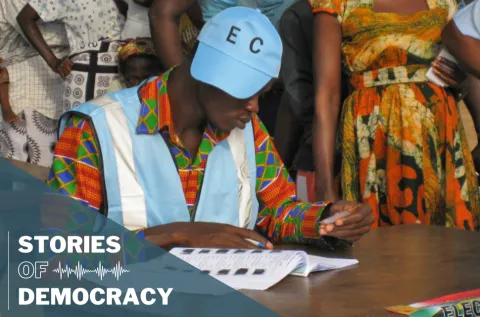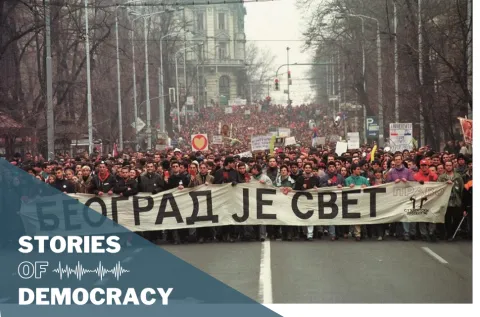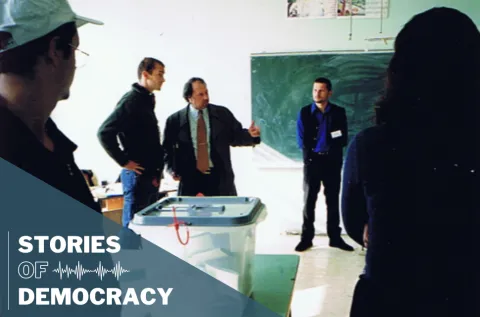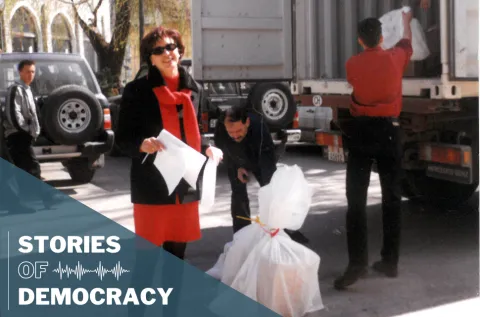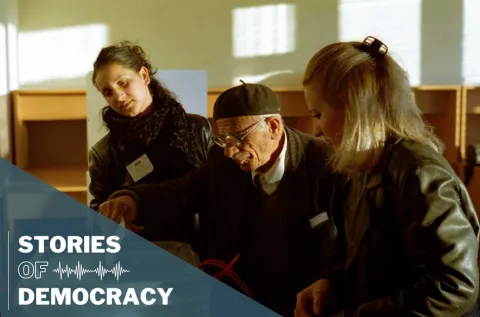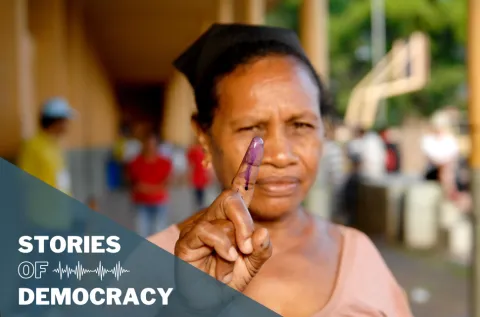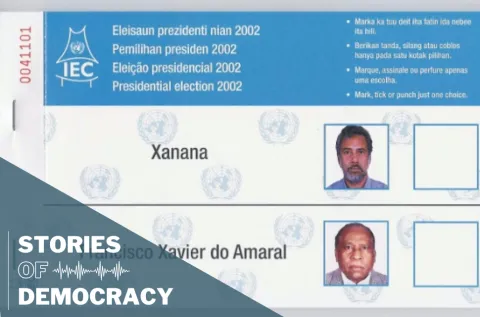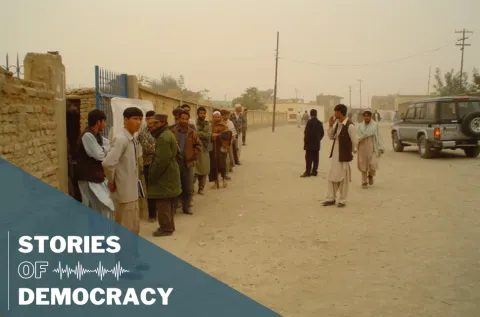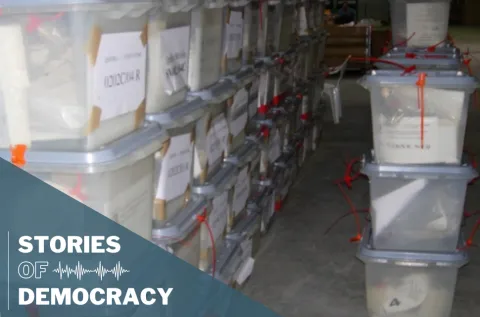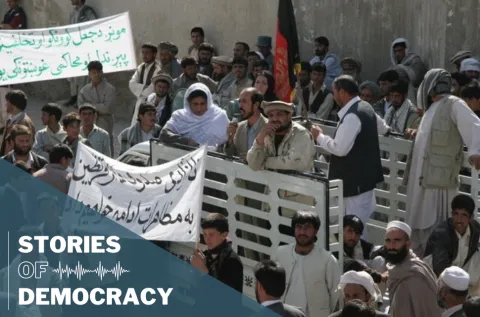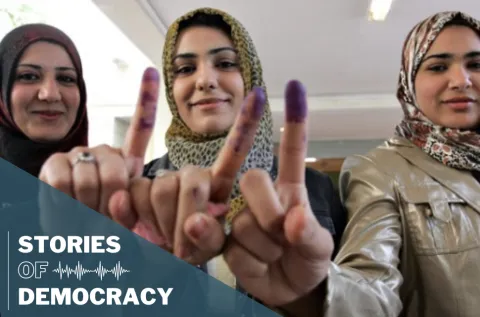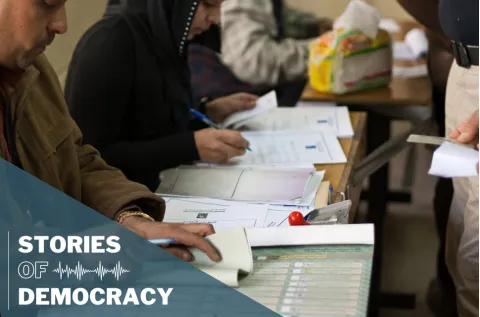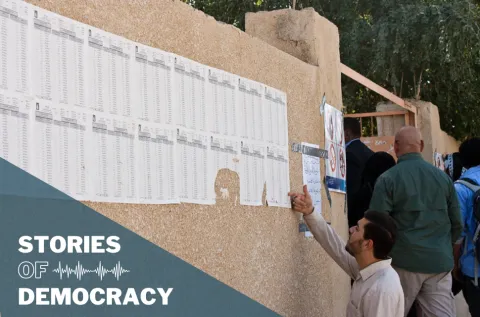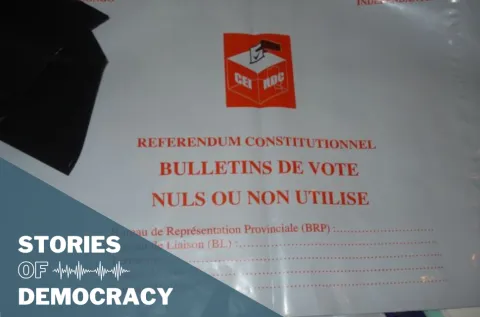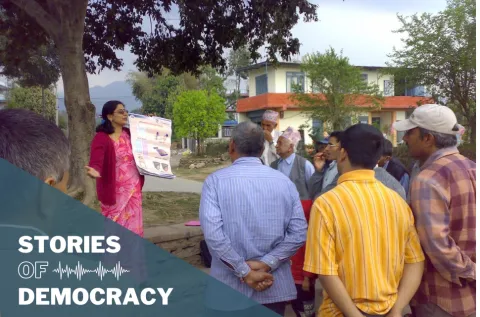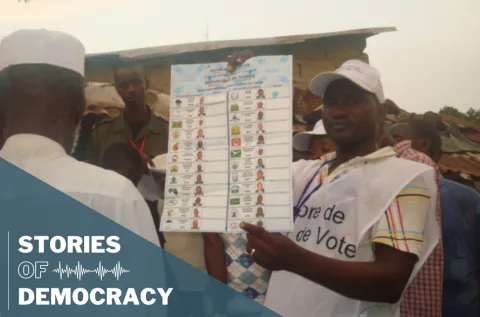Yemen - 2012 - Grant Kippen & Hisham Al-Omeisy
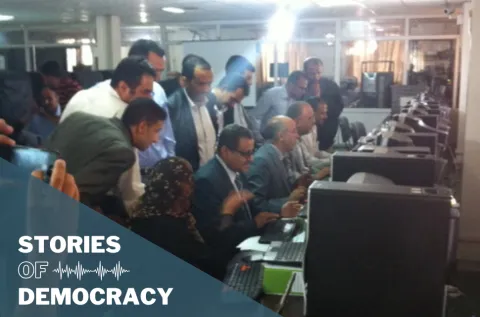
In 2011, after more than 33 years in power, Yemeni President Ali Abdullah Saleh stepped down as part of a Gulf Cooperation Council (GCC) agreement designed to facilitate a transition following the Yemeni Revolution (Arab Spring). Presidential elections were held on February 21, 2012, with former Vice President Abdrabbuh Mansur Hadi as the sole candidate, backed by most political factions to oversee the transition. The election took place without major incidents, with Hadi securing 99.8% of the vote and a reported 65% turnout. Many domestic and international observers viewed this as a hopeful step toward a more representative democracy and national reconciliation, through the planned National Dialogue Conference (NDC).
However, by 2014, Yemen had veered far from this path. The failure to address corruption, deliver justice, and respond to the demands of the 2011 protesters, combined with weak political and institutional reforms, eroded public trust in democracy. A civil war erupted, pitting the Houthi Supreme Political Council, which seized control of the capital Sana’a, against the internationally recognized government of Yemen.
Now, more than a decade since its last election, Yemen’s political institutions have lost legitimacy, and political parties prioritize short-term personal interests over the needs of citizens. In this recording, Grant Kippen, former Chief of Party for the International Foundation for Electoral Systems (IFES) in Yemen (2011–2015), and Hisham Al-Omeisy, Senior Yemen Advisor at the European Institute of Peace, discuss the challenges of Yemen’s post-election transition and what must be done—both by Yemeni leadership and the international community—to rebuild democratic legitimacy and put the country back on track.
Grant Kippen: Grant served as Chief of Party for IFES in Yemen (Dec 2011–June 2015), providing technical assistance and procurement support to the Supreme Commission for Elections and Referendum (SCER) and collaborating with key ministries, the judiciary, political parties, and civil society. For the 2012 early presidential election IFES was responsible for the construction of the SCER Media Center and worked with ministries to support training of security personnel engaged with the electoral process in addition to providing other electoral materials. Post-election, its focus shifted to implementing a $70M biometric voter registry linked to the civil registry. Other assistance areas included capacity building, out-of-country voting, voter education, legal drafting, electoral dispute resolution, security, system design, and political finance.
Hisham Al-Omeisy: Hisham is the Senior Yemen Advisor with the European Institute of Peace. Hisham is a political activist and a proponent of active citizenship in Yemen, where called for socio-economic change and wider political inclusion in 2011. In 2012 he confounded a political party with fellow youth leaders and called it Watan (Homeland) Party (no defunct). He also served as an election monitor during the 2012 presidential election and the 2013–2014 National Dialogue Conference. From 2015 to 2017, Al-Omeisy became a prominent voice reporting on human rights violations and advocating for an end to the war, before being kidnapped and forcibly disappeared by the Houthis. Professionally, he is an information specialist and conflict analyst. He previously served as Director of the Information Resources Center at the U.S. Mission to Yemen, earning the U.S. State Department’s Superior Honor Award. He has also worked with the UNDP and the Coral Group.
